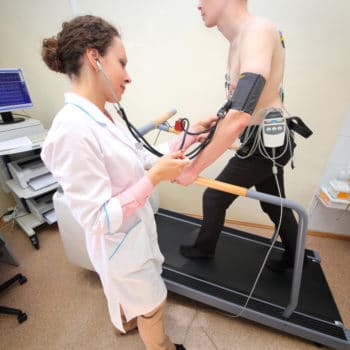Why We Love It
-
$45,730Potential Avg. Salary*
-
Growing DemandJob Outlook
* Salary & growth data is based on the recent Bureau of Labor and Statistics data published at https://www.bls.gov/oes/current/oes292099.htm for 29-2099 Health technologists and technicians, all other 11/2021. Based on national data, not school-specific information. Conditions in your area may vary.
Heart surgery is a serious procedure, and performing it requires the services of many different specialists. Among those specialists is the perfusion technologist who operates the cardiopulmonary bypass machine, managing patients’ physiological and metabolic needs during open-heart surgeries, heart transplants, and more.
The starting point for this career is a bachelor of science in perfusion technology.
What is a Degree in Perfusion Technology?
During major heart procedures like open-heart surgery, valve replacements, heart transplants, and coronary artery bypass surgery, a patient’s heart must be still.
A still heart means the body is unable to push blood through the circulatory systems, which would mean certain death for patients if it weren’t for the skills of the perfusion technologist. Perfusion technologists work alongside cardiac surgeons and anesthesiologists during surgical procedures, managing patient physiological needs by operating a cardiopulmonary bypass machine.
In a perfusion technology program, students learn how to operate a cardiopulmonary bypass machine and monitor patient vital signs during surgery. They take career-specific courses alongside general biology, chemistry, anatomy, and physiology courses, preparing them for careers in the medical field.
Graduates of bachelor’s degree programs in perfusion technology usually qualify to sit for the American Board of Cardiovascular Perfusion’s National Certification Examination, and passing the exam is a requirement for state licensure as a perfusion technologist.
Recommended Schools
What Courses Would I Take For a Major in Perfusion Technology?
- Cardiac Anatomy and Physiology
- Cardiovascular Pharmacology
- Pathophysiology of Cardiopulmonary Bypass
- Basic Surgery and Monitoring
- Perfusion Technology
- Perfusion Devices and Lab
- Cardiology
- Cardiovascular Pathology
What Jobs Can You Get with a Degree in Perfusion Technology?
The aging Baby Boomer generation is at or near retirement age, and this is expected to significantly increase demand for individuals in all types of healthcare professions in the coming decades.
Perfusion technologists should be in particularly high demand because of the increased likelihood of heart disease that comes with age. As aging Baby Boomers seek surgery clear blocked arteries, replace failed heart valves, and receive heart transplants, perfusion technologists will be needed to assist with the surgeries.
How Long does it take?
A bachelors in Perfusion Technology will have a typical length of 4 years in a full time schedule. That said, there are many ways to speed up the timeframe by either taking more units via online coursework, community college, or taking free classes at OnlineDegree.com that could transfer to universities in the US.
Recommended Schools
Best Jobs for Perfusion Technology Degrees
Perfusion technology is a professional degree that leads to a dedicated career as a perfusionist, but graduates aren’t limited to this career alone.
Many graduates attend medical school later in their careers to become cardiologists after gaining experience as a perfusion technologist. Others work in medical technician or medical assistant roles in other related medical specialties.
How to save time and money
Our mission is to help you to avoid paying full price for college. We want your Perfusion Technology degree to be affordable and accessible. Here’s how you could save:
Create Your Free SmartPlan

There are many ways to make college affordable and accessible.
That’s why we created a helpful tool called SmartPlan.
It’s free, and helps you find potential ways to save and tons of information about each school you’re considering
Think of it as your “college blueprint”, to help you instantly craft a path to your degree:
- Which Colleges Match Your Needs
- Ways You Could Save Time & Money
- Free Courses You Could Take for Credit
- Valuable Data and Insights on Each College
- Detailed Steps You Should Take!
See what’s possible for you and generate a free plan within just a few minutes
Create My SmartPlanGet a Master’s Certificate in Perfusion Technology
If you’ve already earned a bachelor’s degree in another discipline and are interested in changing careers and working as a perfusion technologist, there’s no need to start your education all over again.
In many cases, you can earn a graduate certificate in perfusion technology in a year or less, qualify to sit for the licensing exam, and start working in the field without having to pay for another four years of college.
You Might also be Interested in
Many visitors who look for a degree in Perfusion Technology are also interested in the following degrees.













